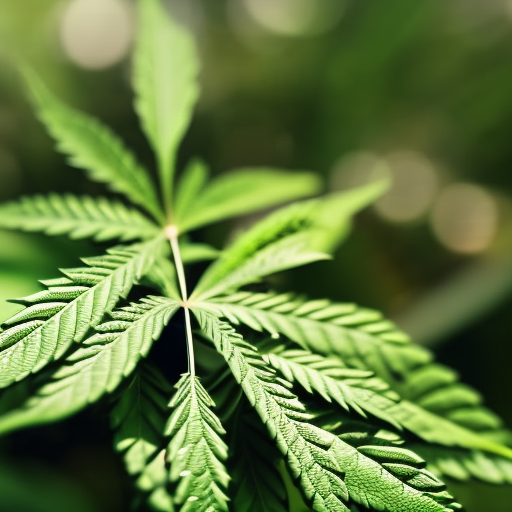 A new review of the scientific literature surrounding CBD and its effects on managing symptoms of Alcohol Use Disorder (AUD) suggests that this cannabinoid could be a useful tool in modulating brain networks that perpetuate addiction. The review, conducted by authors affiliated with the University of Sydney and local health districts in Australia, seeks to explore the potential neurobiological mechanisms by which CBD may ameliorate symptoms of AUD.
A new review of the scientific literature surrounding CBD and its effects on managing symptoms of Alcohol Use Disorder (AUD) suggests that this cannabinoid could be a useful tool in modulating brain networks that perpetuate addiction. The review, conducted by authors affiliated with the University of Sydney and local health districts in Australia, seeks to explore the potential neurobiological mechanisms by which CBD may ameliorate symptoms of AUD.
Previous research has indicated that CBD may impact processes such as salience, reward, emotion generation and regulation, as well as executive control functions like inhibition control, working memory, and self-monitoring. These processes play critical roles in alcohol-seeking behaviors, indicating that CBD could hold promise in the management of AUD.
The report, published in the Journal of Cannabis Research, highlights how CBD appears to modulate neurotransmitter systems and functional connections within brain regions implicated in AUD. This suggests that CBD could potentially be used to manage symptomatology associated with AUD.
In conducting their review, researchers analyzed previously published neuroimaging studies that investigated the effects of CBD on healthy brains. They examined how the cannabinoid influenced brain activity and subjective measures like anxiety and mental sedation. While not all studies supported their findings, the majority of the neuroimaging literature reviewed indicated that CBD may normalize processes related to mesocorticolimbic, limbic, salience, and fronto-striatal signaling.
Given the relevance of these brain networks to alcohol-seeking behavior and relapse, the researchers concluded that further investigation into the effects of CBD on brain function and behavior in populations with AUD is warranted.
These findings contribute to a growing body of research suggesting that cannabinoids like CBD could be beneficial in treating substance use disorders. Understanding the neurobiological mechanisms behind these potential benefits is crucial for developing effective treatment strategies.
The study underscores the connection between chronic heavy alcohol use and impairments in reward processing, salience attribution, emotion regulation, and executive functioning. By perturbing various brain networks involved in AUD development and maintenance, chronic alcohol use can have profound effects on an individual’s behavioral patterns.
CBD’s potential to normalize perturbed neurocircuitry associated with AUD represents a promising avenue for supporting positive behavioral changes in individuals struggling with alcohol use disorder. Neuroimaging findings further support the notion that CBD may modulate neurocircuitry linked to AUD maintenance.
The study’s implications extend beyond alcohol use disorder management. Recent research has suggested other potential applications for CBD, such as regulating menstrual-related symptoms like irritability, anxiety, and stress. Additionally, studies have explored CBD’s safety for long-term use in dogs, highlighting its efficacy in treating conditions such as anxiety and certain skin diseases among canines.
As interest in hemp industry research continues to grow alongside state-level marijuana legalization efforts, federal agencies are investing resources into distinguishing hemp from marijuana. Analyzing cannabinoid profiles quickly can aid crime labs in differentiating between these two forms of cannabis and inform policy decisions around federal hemp regulations.
While regulatory hurdles persist within the hemp industry due to ongoing federal prohibition issues, stakeholders are pushing for amendments to current laws that would free up hemp businesses to legally market products like CBD as dietary supplements or food additives. The economic landscape of the hemp market remains complex but promising despite challenges faced by businesses operating within this sector.
Overall, emerging scientific evidence points to a potential role for CBD in managing symptoms of Alcohol Use Disorder by modulating key brain networks implicated in addiction. Continued research into this area is essential for advancing our understanding of how cannabinoids can be leveraged to address substance use disorders effectively.

